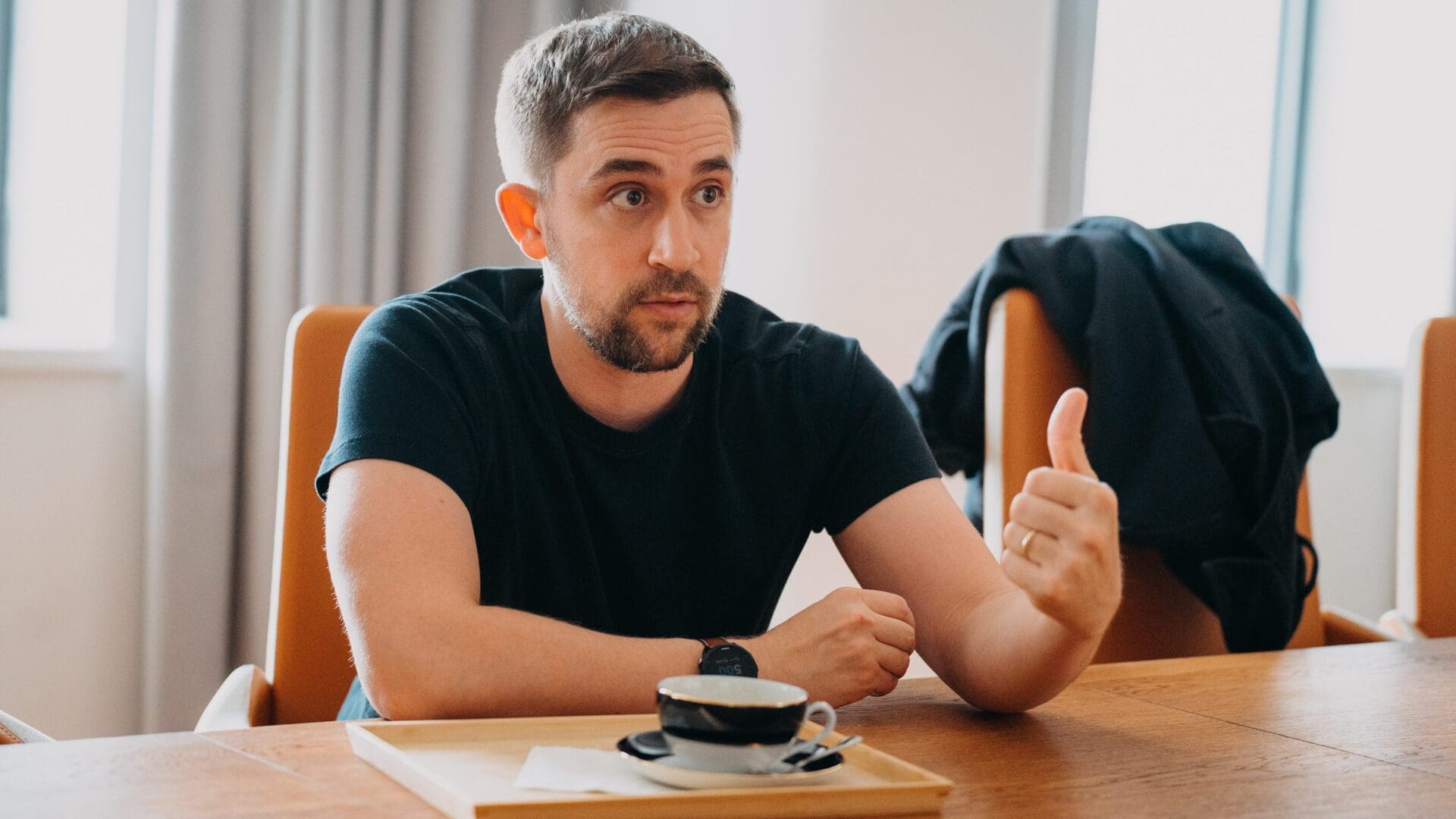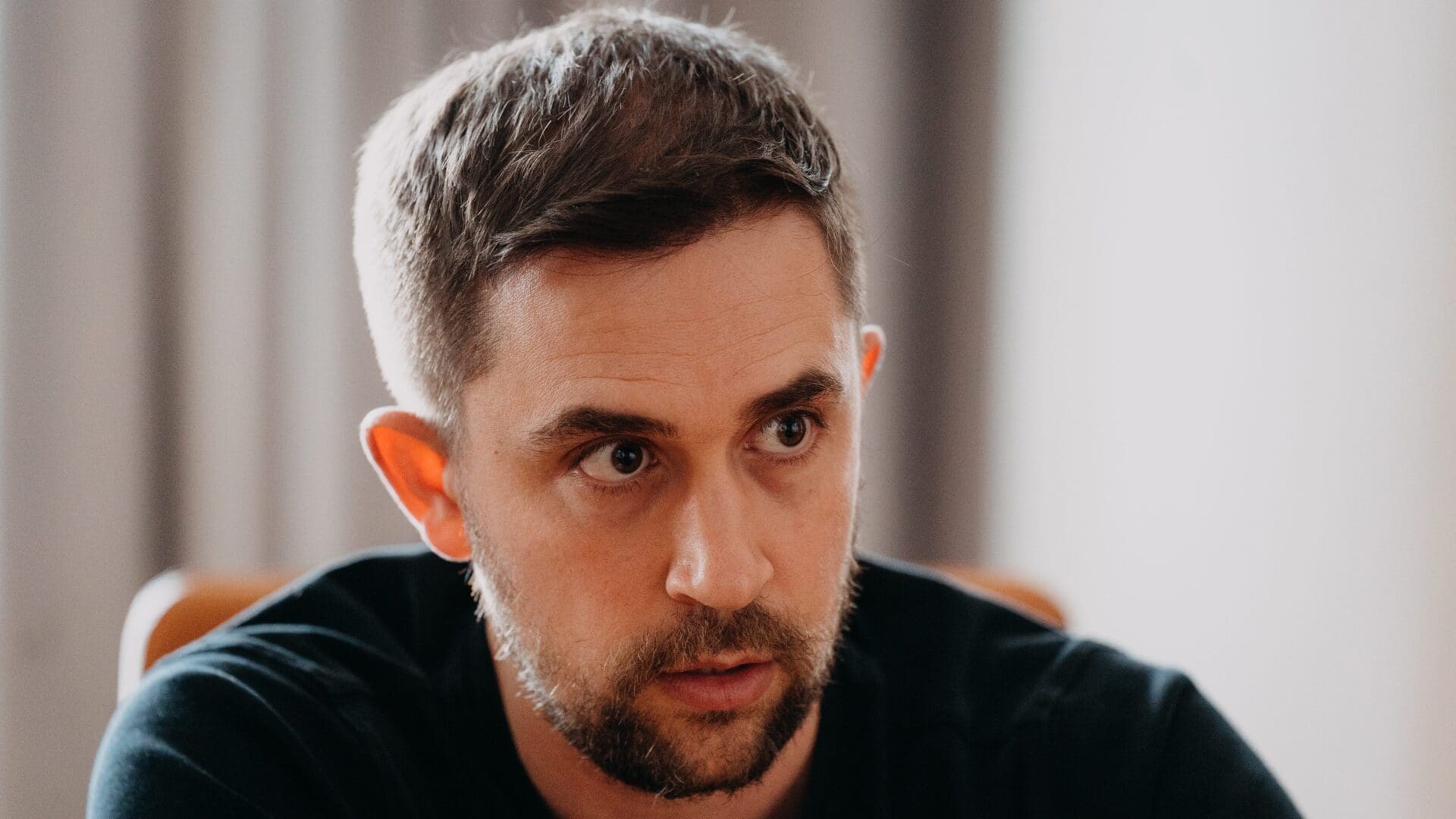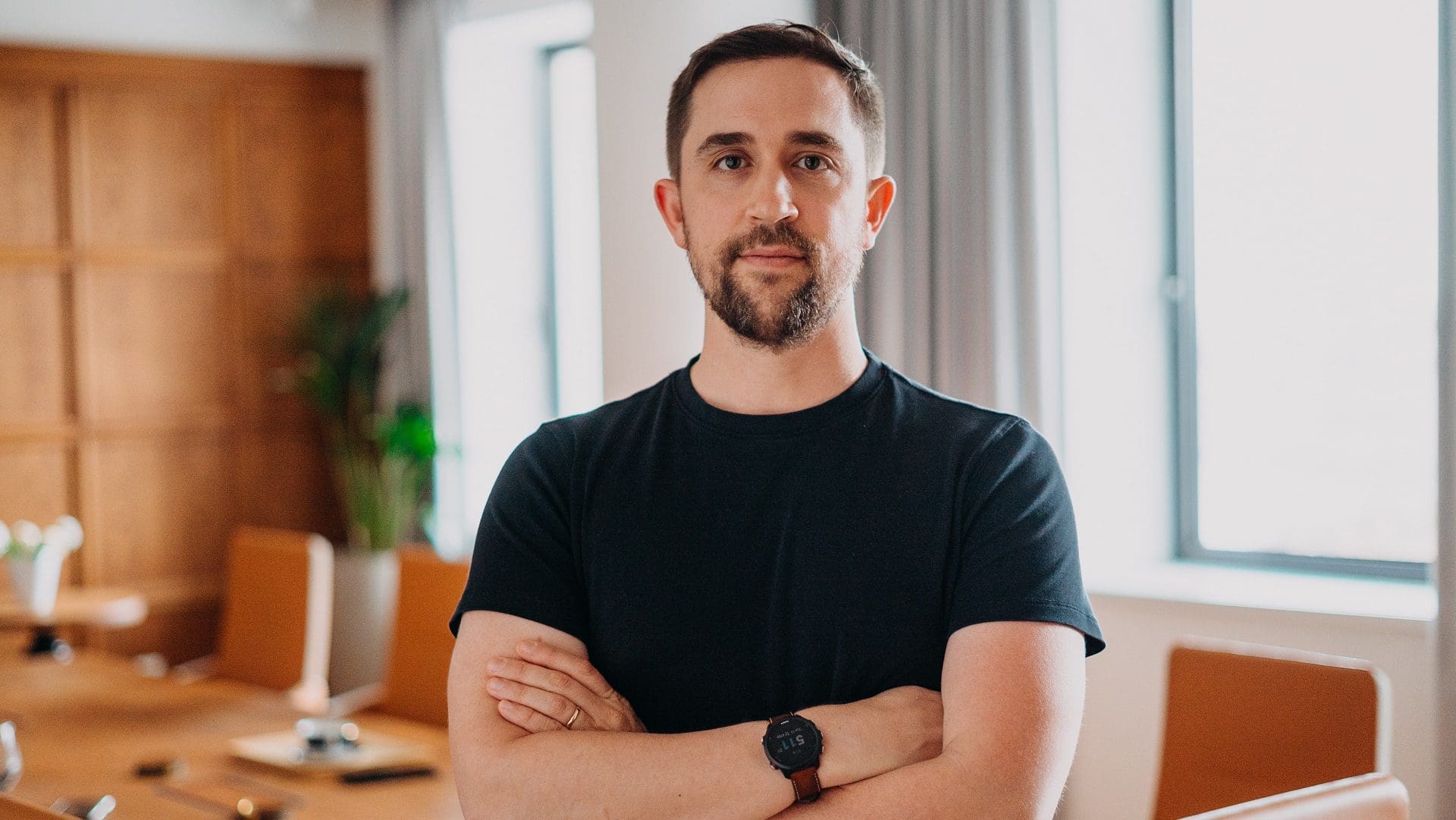Christopher Rufo is a Senior Fellow at the Manhattan Institute and a Visiting Fellow at the Danube Institute who has worked closely with Florida Governor Ron DeSantis in tackling the ever-so-pervasive woke ideology in the United States. He was also kind enough to sit down for an exclusive interview with Hungarian Conservative, which you can read below.
What percentage of the US population do you think actually subscribes to this woke ideology on gender and race? How can we gauge that?
There was a rigorous public polling survey of American voters that found that approximately seven per cent of Americans are committed left-wing activists that subscribe to what you can summarise as woke ideology. So, it’s a relatively small number on a percentage basis, but because we have 340 million citizens in the United States, it’s a relatively large number on an absolute basis. There are millions of people who are dedicated to this culturally, socially, ideologically, and politically. Therefore, you have a situation in which a minority, an ideological minority, has outsized political power and cultural power through the institutions that are sufficient for them to impose ideology on everyone else. So, even if, as the public polling data bears this out, most Americans are moderate, or even centre-right, that’s not necessarily the most important question to ask or to answer. Because politics is not a game of majority opinion.
Politics actually advances by very motivated minorities,
or very motivated political fractions that are numerically small but have high levels of care, concern, and passion. That’s why you see these ideologies within American institutions even if most Americans don’t subscribe to them.

What is the end goal of these woke ideologues? Do you think the majority of them believe they are working towards equality, or is there something more nefarious, some sort of a power grab, a hidden agenda?
I don’t think so. My belief, having studied this, its intellectual history, and also having done the reporting in the real world, is that most left-wing activists truly believe their movement is going to create an open society, and an equal society, and a compassionate society. That is their motivation. And I think it is their honest motivation. Most of the adherents are probably well-intentioned, the more sophisticated players certainly understand the political limitations of their ideology. There certainly are cynical operators that will use some of those stated goals to advance their own power, whether it’s within politics or within the bureaucracy. But the movement itself is genuinely committed to these principles.
The problem arises with the fact that their policies don’t actually yield those principles as outcomes in practice. What we’ve seen, for example, in 2020, with the George Floyd riots: their singular policy objective at that time, the slogan of the movement, was ‘defund the police’, because the police is an oppressive part of the state apparatus that discriminates against racial minorities. And they really believed that. They believed that a world beyond policing was a world that was more equal, more fair, and more racially just. The problem is that any cities or municipalities that defunded the police, moved it back, limited police presence, de-policed neighbourhoods and decarcerated populations from jails and prisons, they created a less just world, a less safe world, a less fair world. So the problem is not that left-wing activists are using these slogans to advance a hidden agenda, the problem is that their agenda does not yield the results that they would like.
How centralised is the power behind pushing these agendas?
The great power of the woke movement is its decentralisation.
There isn’t a shadowy funder that is deploying the ideology, there isn’t a political power that is forcing it from the top down. There are, of course, funders and political operators. But the real power of the movement is the very fact that it’s decentralised. It operates on a system of incentives, rewards, punishments, status, prestige, and distribution. So it moves through the institutions in a way that it almost appears totally coordinated. But it’s only coordinated because they are following the same signals and incentives. Therefore, it is a lot harder to defeat, because you have to defeat it at each of those nodes, at each of those points of power, which is very difficult. I would actually much prefer if it was centralised, top-down, and driven by a singular organisation, donor, or political leader. You can get to work on that, and start fighting it directly.
Based on what you said about the situation regarding wokeness, this does not seem like an easy win for me…
What we’ve seen actually is that you have to fight it in 10,000 different school districts. You have to fight it in thousands of municipal governments, dozens of state legislatures, all of the Fortune 100 companies, all of the major medical institutions and professional licencing organisations. That is a great challenge for conservatives and for anyone who would oppose the imposition of woke ideology. It is pervasive in a way that is also extremely flexible, and adaptable, and well-entrenched within institutions. So, we have to be smarter and more sophisticated in how we develop strategies to counteract this.

Let’s talk about Florida Governor Ron DeSantis, one of the biggest opponents and most powerful opponents of this odious ideology. Some believe that he tends to draw inspiration, or ideas, from Viktor Orbán, the Hungarian Prime Minister. Do you believe that’s the case?
I don’t know. Certainly, there are some similarities between some of the policies in Florida and some of the policies here in Hungary, but if there is a direct inspiration, I am not aware of it.
How do you believe Governor DeSantis handled the dispute with Disney, one of the largest companies in the world? They opposed his bill restricting the teaching of modern gender theory in schools.
I think Governor DeSantis’ fight with Disney was extremely effective. I had a front-row seat and watched it all unfold, I did some of the key reporting that revealed what was actually happening inside Disney, published videos that ended up driving billions of media impressions in the middle of that fight. I was there when he signed a bill stripping them of their special corporate privileges. What I observed was a really remarkable sequence of events.
At the very beginning, all of the commentariats, left, right, and centre, were saying that DeSantis should not fight Disney,
because it’s the most powerful corporation in Florida, one of the largest media and entertainment companies in the world, and it had such goodwill, dating back for a century, that you would find it impossible to defeat them in the realm of public opinion. He then starts to actually fight and says ‘No, we’re actually gonna take this on’. He fought them in the media, he fought them in the legislature, fought them toe-to-toe in the state of Florida, as well as the country. And then, you fast forward, DeSantis’ popularity skyrockets, and Disney’s popularity plummets dramatically. Domestic subscriber growth for their Disney+ service plummets. Their stock spirals downward, due, I think, in part to this fight, not totally, but in part. Disney ends up jettisoning their CEO, then brings back the old CEO to steady the ship.
Do you think this was an effective way of handling such a conflict?
I think all of the evidence suggests that it was a very successful fight, and also a model for conservative leaders to understand direct conflicts and confrontations with our enemies, whether state bureaucracies, or Fortune 100 c-suites, or the teacher’s unions across the country.
If you handle it with enough skill and sophistication, it can yield great rewards.
What I think the great lesson is from DeSantis and Disney, but also in general, was that courage and competence are the key elements of successful governance, and he demonstrated both of those in spades.
There is this meme, or rather a presumption, on the right that the idea of ‘get woke, go broke’ is real. Is there any factual basis for that, or is it just wishful thinking? If a company adopts woke messaging in its marketing or its corporate culture, is it going to do worse financially than if it had not done so?
I don’t think there’s any evidence that suggests ‘get woke, go broke’ is an automatic process that is inevitable from premise to conclusion. It’s not the case that companies that adopt woke ideology suffer financial consequences for that. However, it is the case that conservative political leaders, as Governor DeSantis has demonstrated with his fight against Disney, can make that happen through concerted political action. So, it’s a principle that can exist, if we use our political power to enact it, but it’s not something that happens automatically. If Bud Light hires a transgender influencer to represent the canned beer, automatically Bud Light won’t suffer catastrophic consequences. It is wishful thinking, but it’s also even worse than that, it’s self-defeating because it gives the impression that we don’t have to do anything when, in fact, it’s really an invitation for political action. If we take political action, we can make ‘get woke, go broke’ in some cases a reality, but it certainly requires agency and effort on our part.
Let’s play devil’s advocate for a minute. What do you say to those who point out that the American government having racist stances, official positions, is not new? Since its foundation, up until desegregation and the civil rights movement, that was mostly the case. You would agree with that, right?
Yes.

So, what do you say to those who say that maybe it’s time for the white majority, a diminishing majority, to experience that, because historically, other groups lived through this?
I think it’s the basic violation of the political principle of equality, but also a basic violation of any moral principle of equality. I don’t think that the answer to racism is more racism. And I don’t think if you asked Americans what kind of society they want, if you gave Americans a choice: do you want an equality society or do you want a revenge society? I think the overwhelming majority of Americans of all racial backgrounds would pick an equality society. And I think that we are capable of achieving that. We’re actually very close to that.
With some minor changes, we could get to a truly equal society
in which everyone has individual rights that are protected by the government and they are treated the same regardless of their race. That’s always been the goal of American political life.
Even if you look at the founders, who inherited a system of slavery, they embedded in the principles, but also the governing system, into the fabric of our country, to allow us to eventually abolish slavery and establish equal rights, and have every citizen have equal participation of American political life. And so, we’ve been moving toward that for around 250 years. I think to abandon that in the name of, you know, revenge is a fatal mistake.
Do you think that Hungarian society is in danger of having this woke ideology propagated, given that our historical context doesn’t really fit that? We never had slave owners, we never colonised anybody.
I think Hungarian society should absolutely be on guard. Having spent the last month in Budapest, I noticed that you have Netflix, avocado toast, and rap music. America is the greatest exporter, perhaps in human history. Our exports are everywhere. I think many of our exports are good, but unfortunately, we are also exporting woke ideology.
It doesn’t transpose neatly into the historical context of Hungary, but these ideologies find a way to adapt.
I think as Europeans become more and more Americanised, I’ve seen other European countries adopt these uniquely American political ideologies. So, there’s no reason to think that Hungary would be totally immune. Although I would say that in my view, Hungary has a more robust immune system, and thus could be more successful in limiting the damages from these movements and ideas.
Related Articles:








